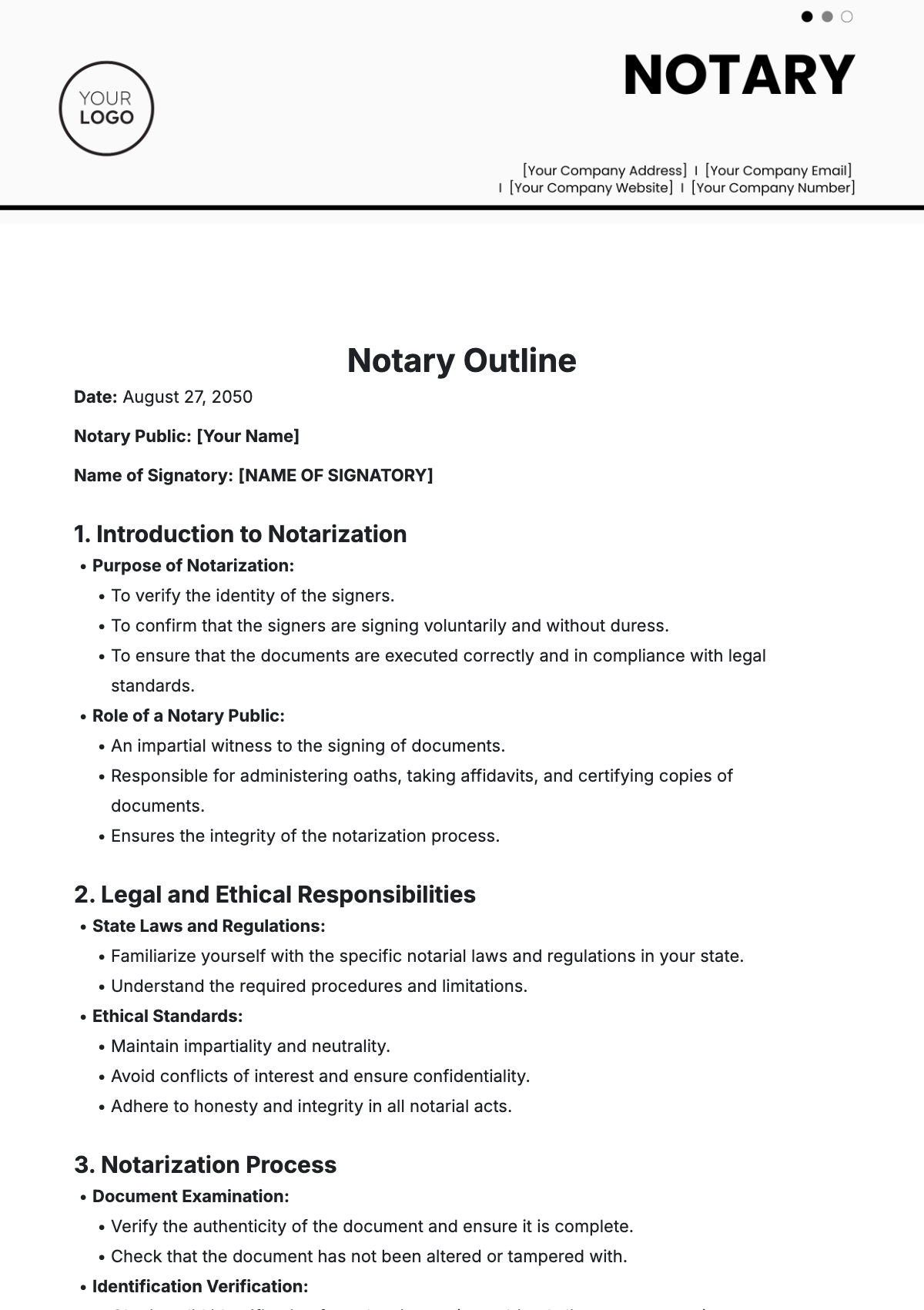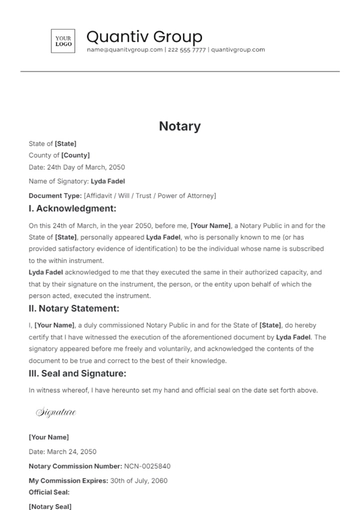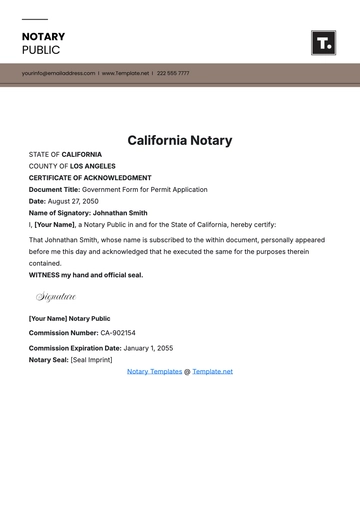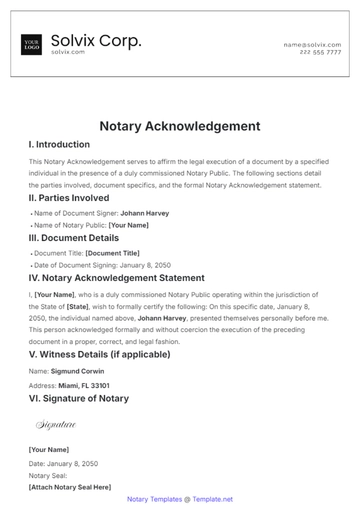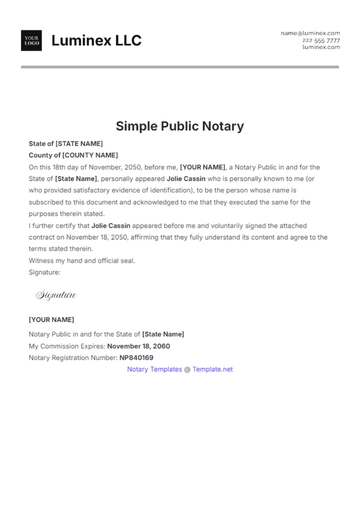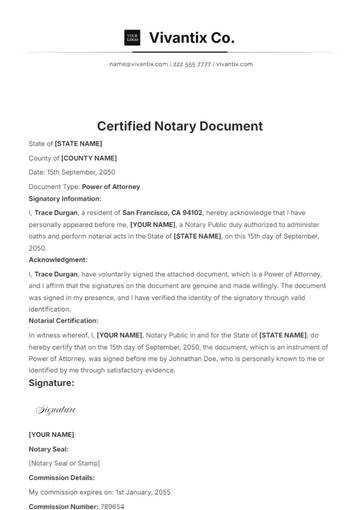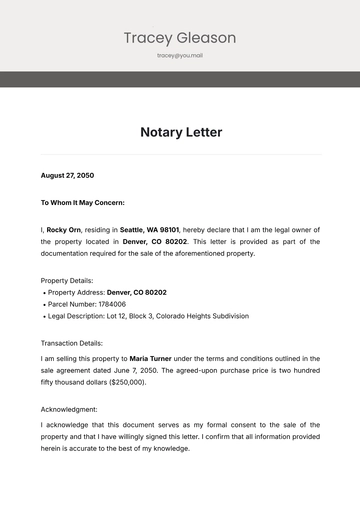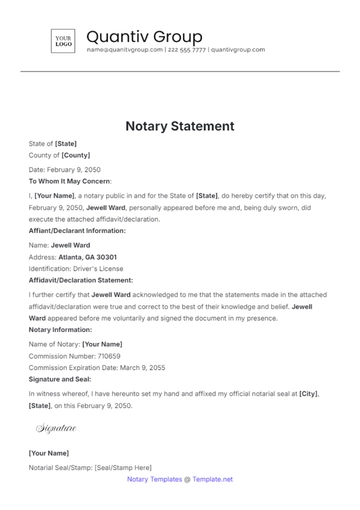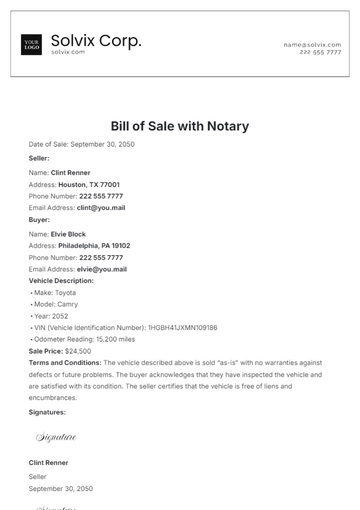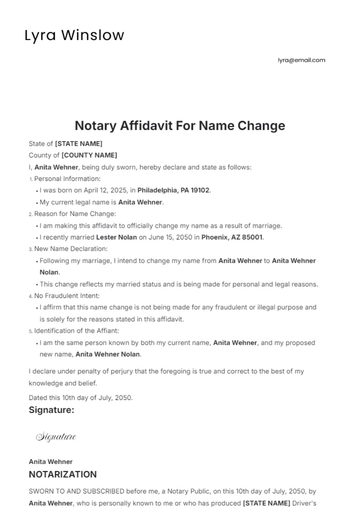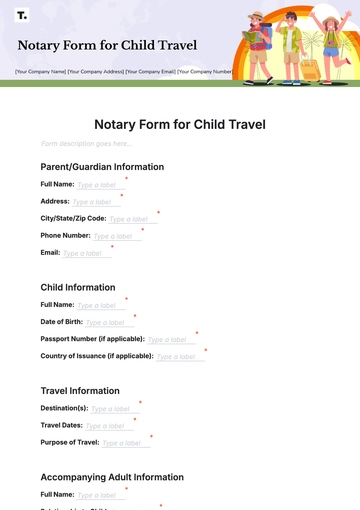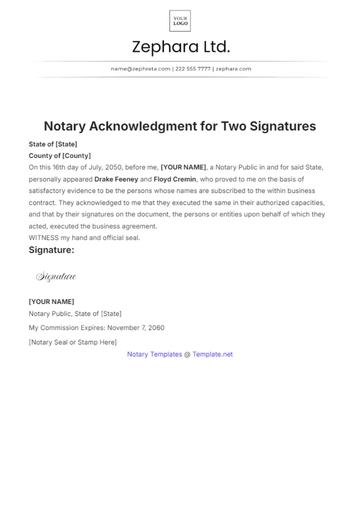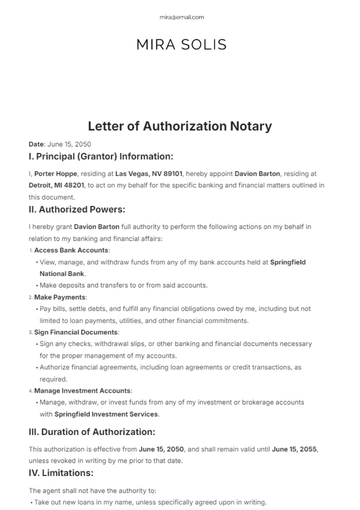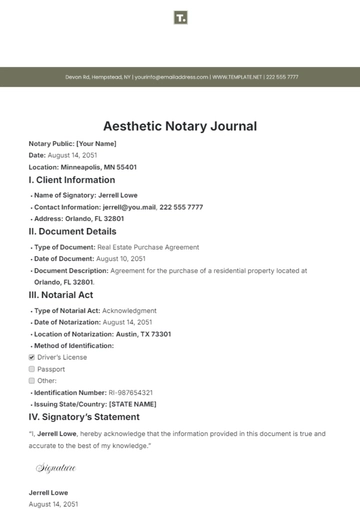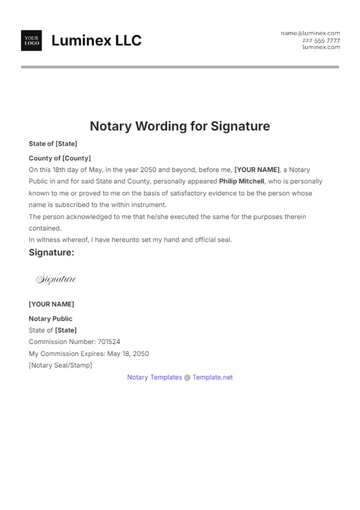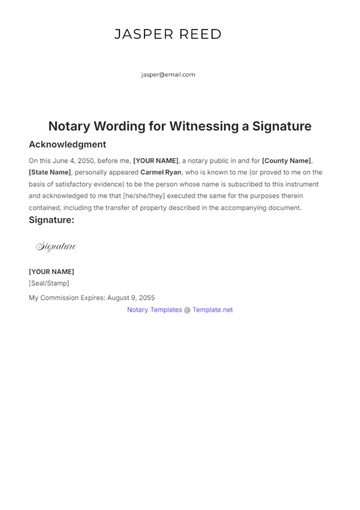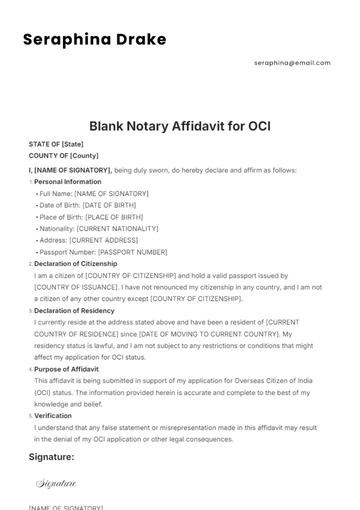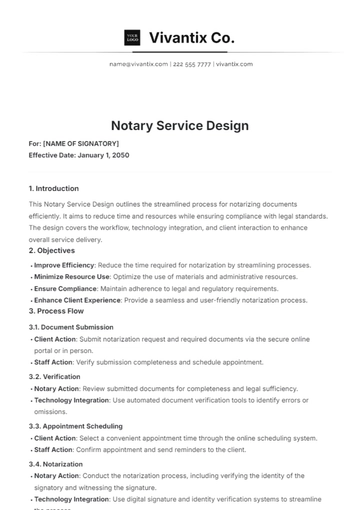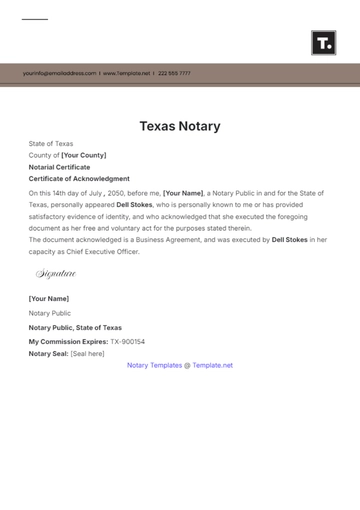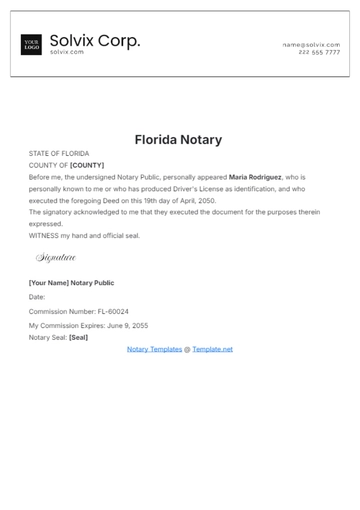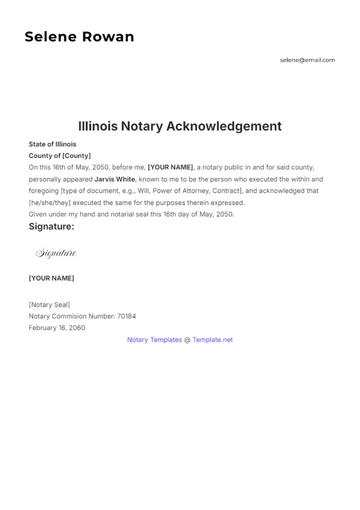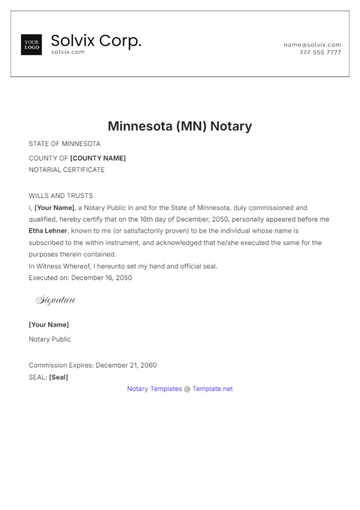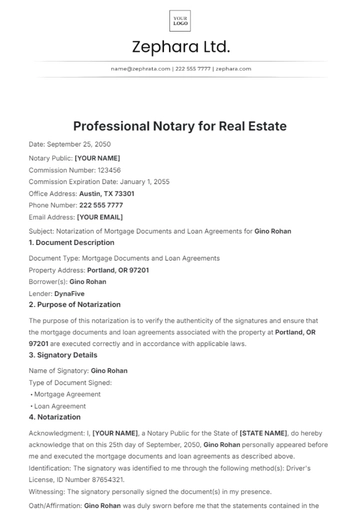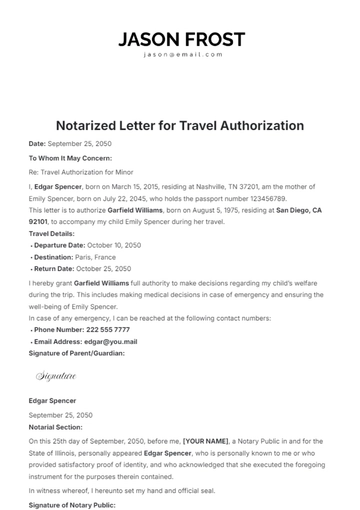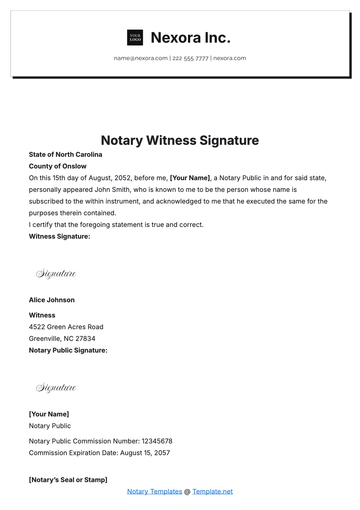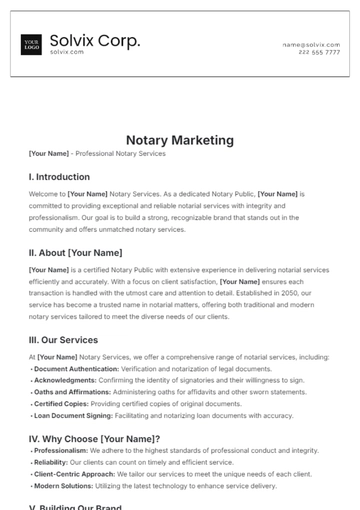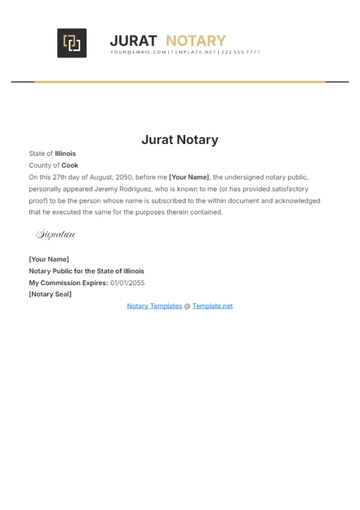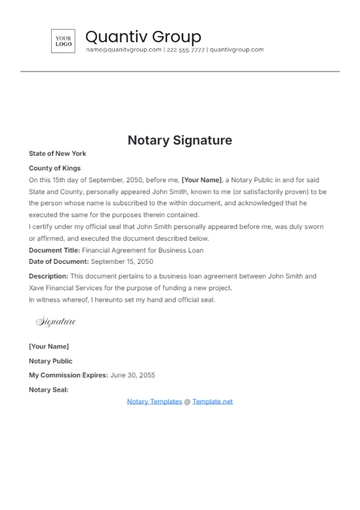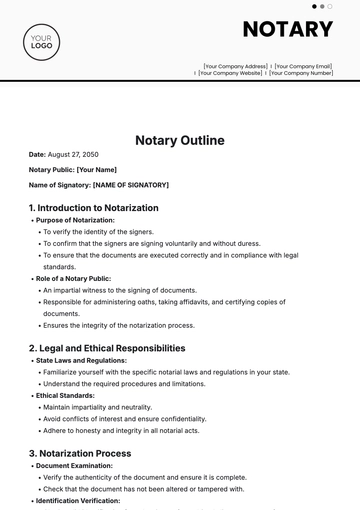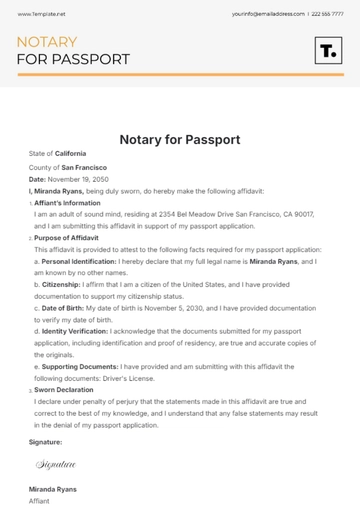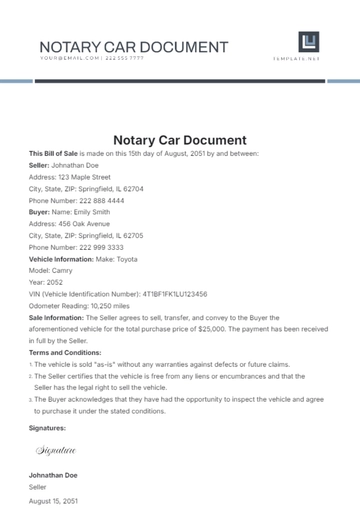Notary Outline
Date: August 27, 2050
Notary Public: [Your Name]
Name of Signatory: [NAME OF SIGNATORY]
1. Introduction to Notarization
Purpose of Notarization:
To verify the identity of the signers.
To confirm that the signers are signing voluntarily and without duress.
To ensure that the documents are executed correctly and in compliance with legal standards.
Role of a Notary Public:
An impartial witness to the signing of documents.
Responsible for administering oaths, taking affidavits, and certifying copies of documents.
Ensures the integrity of the notarization process.
2. Legal and Ethical Responsibilities
3. Notarization Process
4. Notarial Tools and Equipment
Notary Seal:
Notarial Journal:
Maintain a detailed record of all notarial acts.
Include information such as the date, type of document, names of signers, and identification details.
Acknowledgment Forms:
5. Common Scenarios and Challenges
6. Continuing Education and Professional Development

[Your Name]
Date: August 27, 2050

Signature of Signatory
Date: August 27, 2050
Notary Templates @ Template.net
